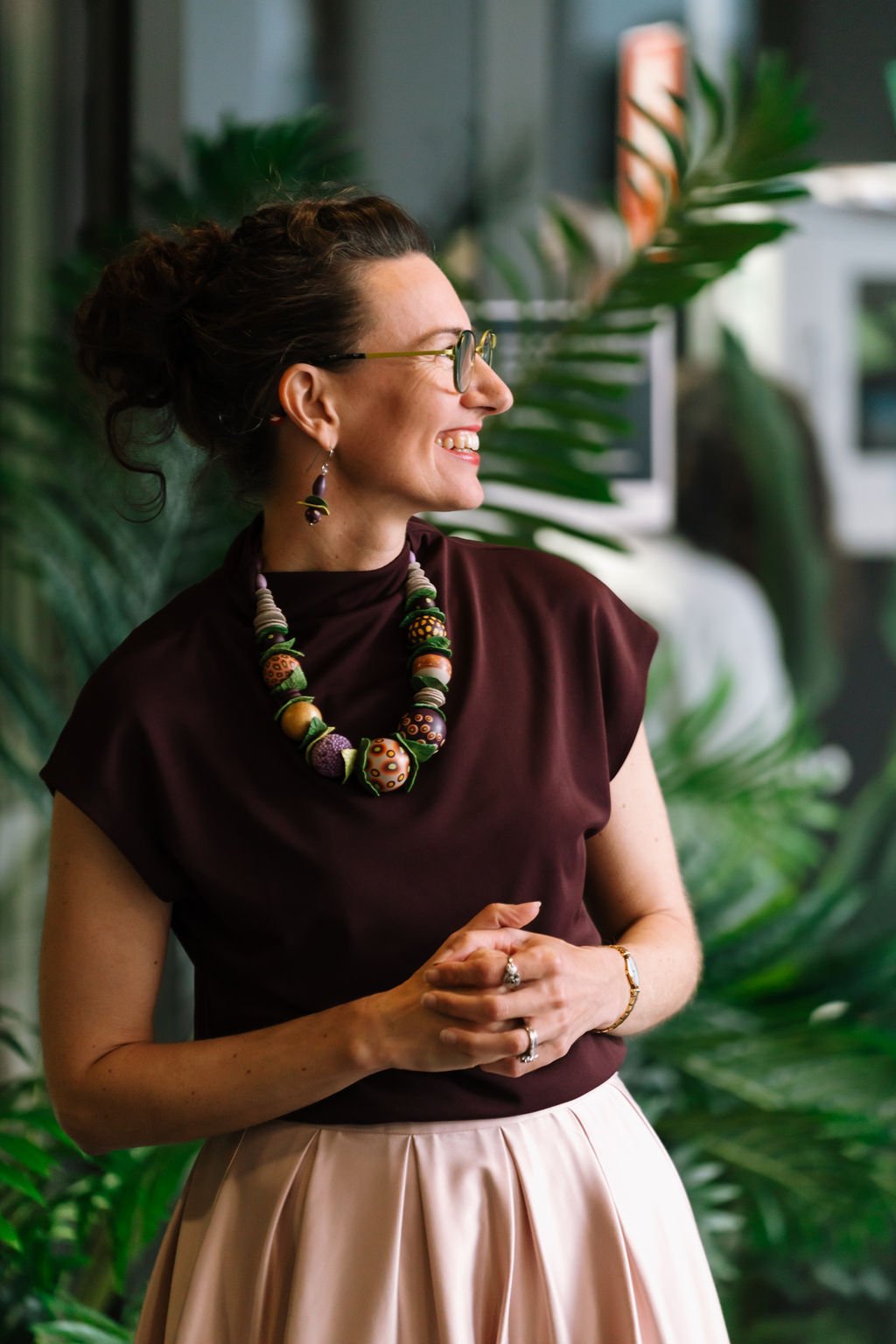Beyond Business Basics: Kate Foley interrogates the ‘why’ during The Refinery 5.0
Kate Foley is a jewellery maker. Primarily working with polymer clay, she is committed to giving people individual self-expression through jewellery as wearable art. Three weeks prior to commencing The Refinery 5.0, Kate opened her jewellery and small objects gallery, Adorn, in Montville. The shopfront which includes her making space, is a platform to showcase and retail her work alongside other contemporary jewellery makers. Eight weeks after The Refinery concluded, Kate launched Adorn with a public event and micro exhibition, Tiny Creatures, featuring commissioned works of 11 artists including photographer, Isabella Alexis-Balisky.
Kate’s background before committing to be a fulltime professional artist was in the federal government as an auditor. She came into The Refinery 5.0 with a business plan for her start up and skilled in developing systems and processes. Rather than looking to the program to learn hard business skills, she was looking to test her concept and strategy. By her own admission, Kate is a planner and risk manager and in part she was looking to The Refinery through the lens of it being another risk management tool – seeking confirmation as to whether she had all the bases covered to support her to be financially sustainable.
Now 25 weeks from Adorn’s doors being opened, I explored with Kate the impact of The Refinery on her business and the changes she’s made to her original plan as a result of her participation in the program.
The Refinery program was different from what Kate expected. She expected the focus to be on financial sustainability and traditional business areas but rather she said it was an opportunity to interrogate the ‘why’, the impact she wants to make, and how she wants to be viewed in the market.
The core of Kate’s plan has remained unchanged, Kate says, ‘but what The Refinery did was bring out the opportunity that lies in social connection to position Adorn as more than a retail space. I’m now working with a deeper sense of meaning and giving back to the community.’
‘My business plan was based on attracting and selling quality contemporary jewellery. I hadn’t thought much about localism and didn’t have a commitment to exhibiting local artists. While I am not committed to being exclusively local, what I now have is an appreciation of the value of connection and storytelling and my focus is on local makers. This dimension to the business offers meaning and connection with customers and is ultimately driving sales, especially with tourists. Travellers want to buy local and take a little bit of the Sunshine Coast home. I know the stories of my artists, and this is the basis of my engagement with customers. Adorn is not just about my story but about all of the artists, including me, and the place where we create. It also now feels like I’m giving back to my community.’
Kate credits The Refinery with her gaining appreciation of the importance of collaborations and the power of relationships. Her objective was always to expand people’s perspective of the potential of creating using polymer clay, and she planned to do this by positioning polymer jewellery works next to other high quality contemporary jewellery made with other materials. The Refinery opened her eyes to the potential to collaborate across artforms and the opportunity of these collaborations to genuinely expand audiences. ‘The Refinery kick started these collaborations. It is a different network of artists than what I already had and there’s value in our capacity to collaborate.’
Kate directly attributes the success of the opening on the project planning workshop in week 9 with mentoring from Amie Moffat. ‘I was always going to do it but I was avoiding it, thinking what if no one turns up? I was apprehensive, procrastinating. With the task of creating a plan for post program, it made me set a date and commit. I received advice on how to plan the event, the logistics of ticketing, invites, timeline, identifying audience, it was all new to me. Through The Refinery I had the contacts and networks I needed to pull it off successfully. Most of all it gave me the confidence, the kick I needed to get it done.’
‘Overall, The Refinery taught me to balance planning and risk management with the need to take action. I’m still firmly sitting in the planning camp but what I learned is that you need to trial ideas, things are not set in stone – you can adjust and modify as you go. I am better at managing my fear of failure and taking risks. I better appreciate what I know and have built confidence in my instincts.’
Ben Johnston’s talk really resonated with me because he talked a lot about strategies and planning. But he also shared his test: Is the world a better place because of my business? Am I making an impact? This really stuck and it’s made me think about things a little bit differently.’
Words by Liz Burcham, President, SCCA
Photo by Patrick Want
The Refinery Creative Business Incubator is delivered as part SCCA’s platform of professional development programs designed to support creative practitioners working at the intersection of art, technology, environment and design.
Learn more about The Refinery programs currently open for applications.


